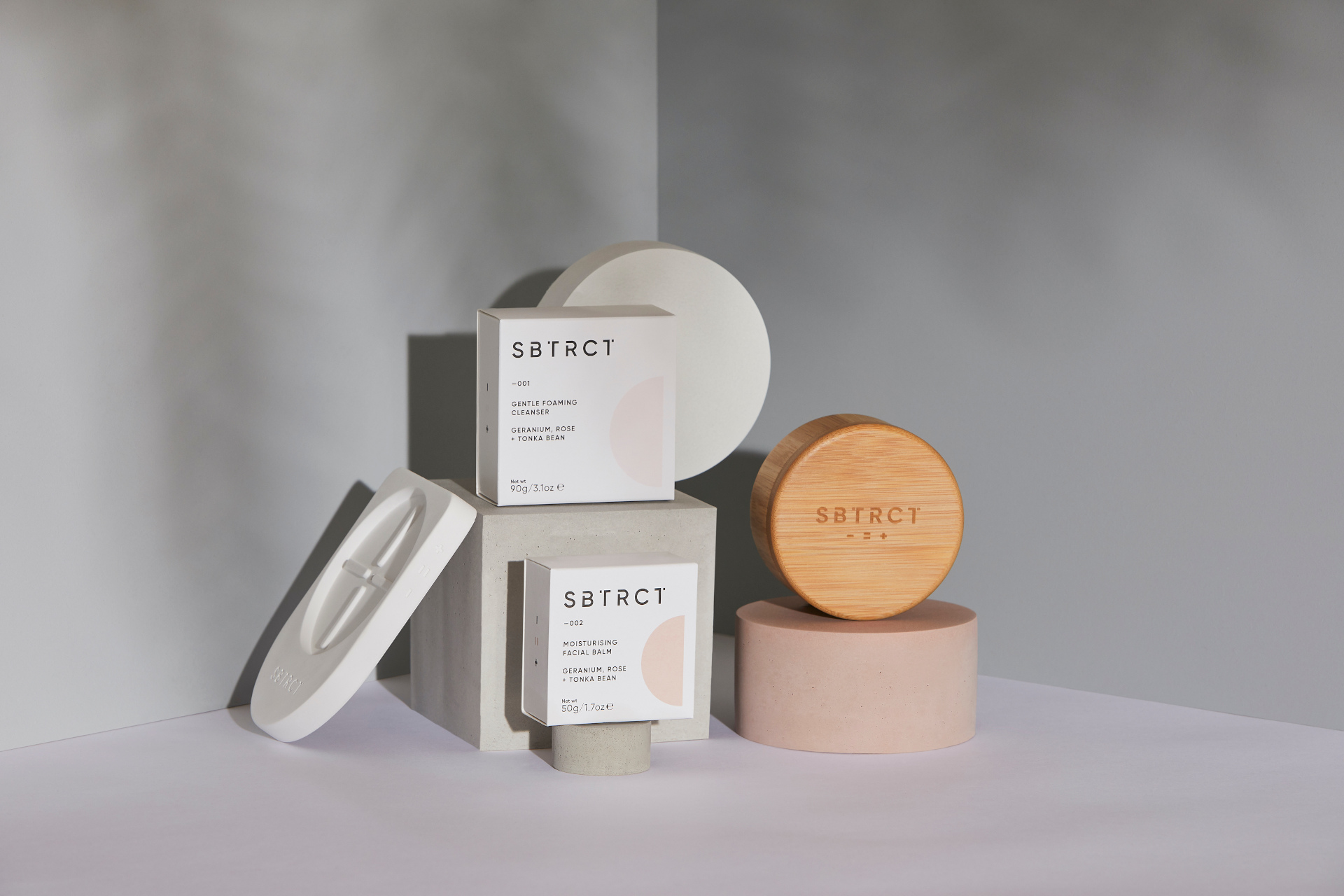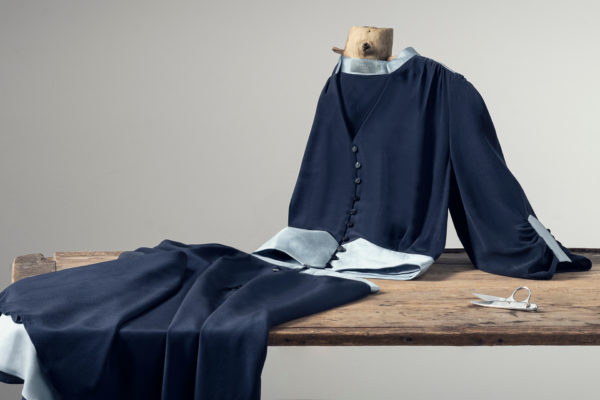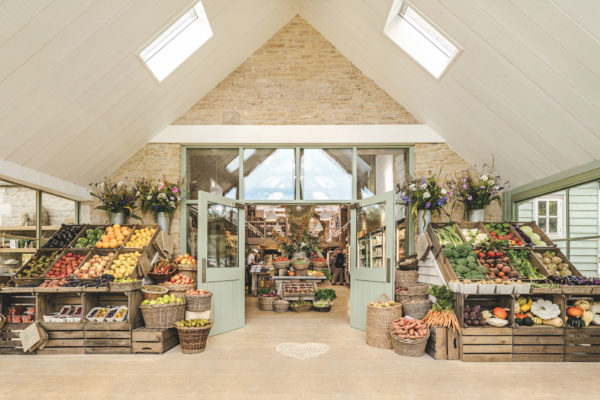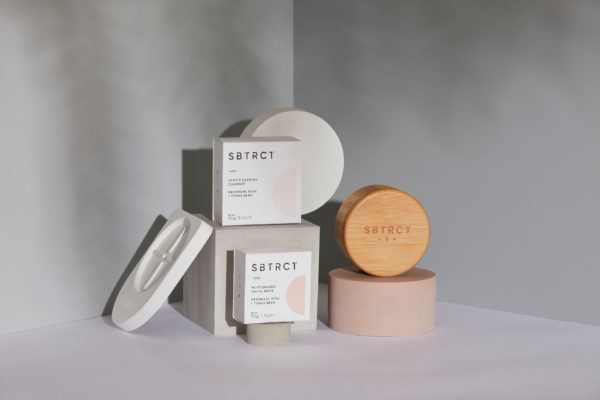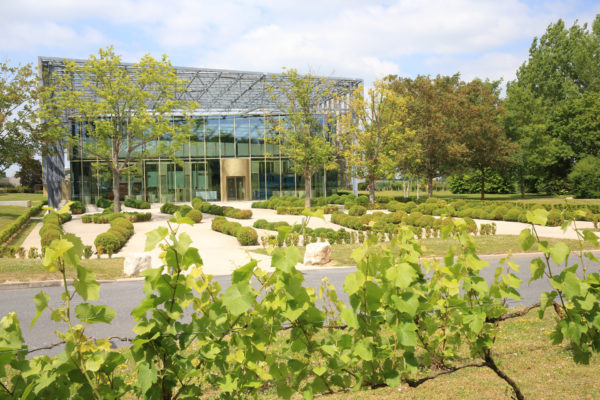C&TH Is a B Corp!
By
2 years ago
We're the world's first glossy magazine to have the accreditation
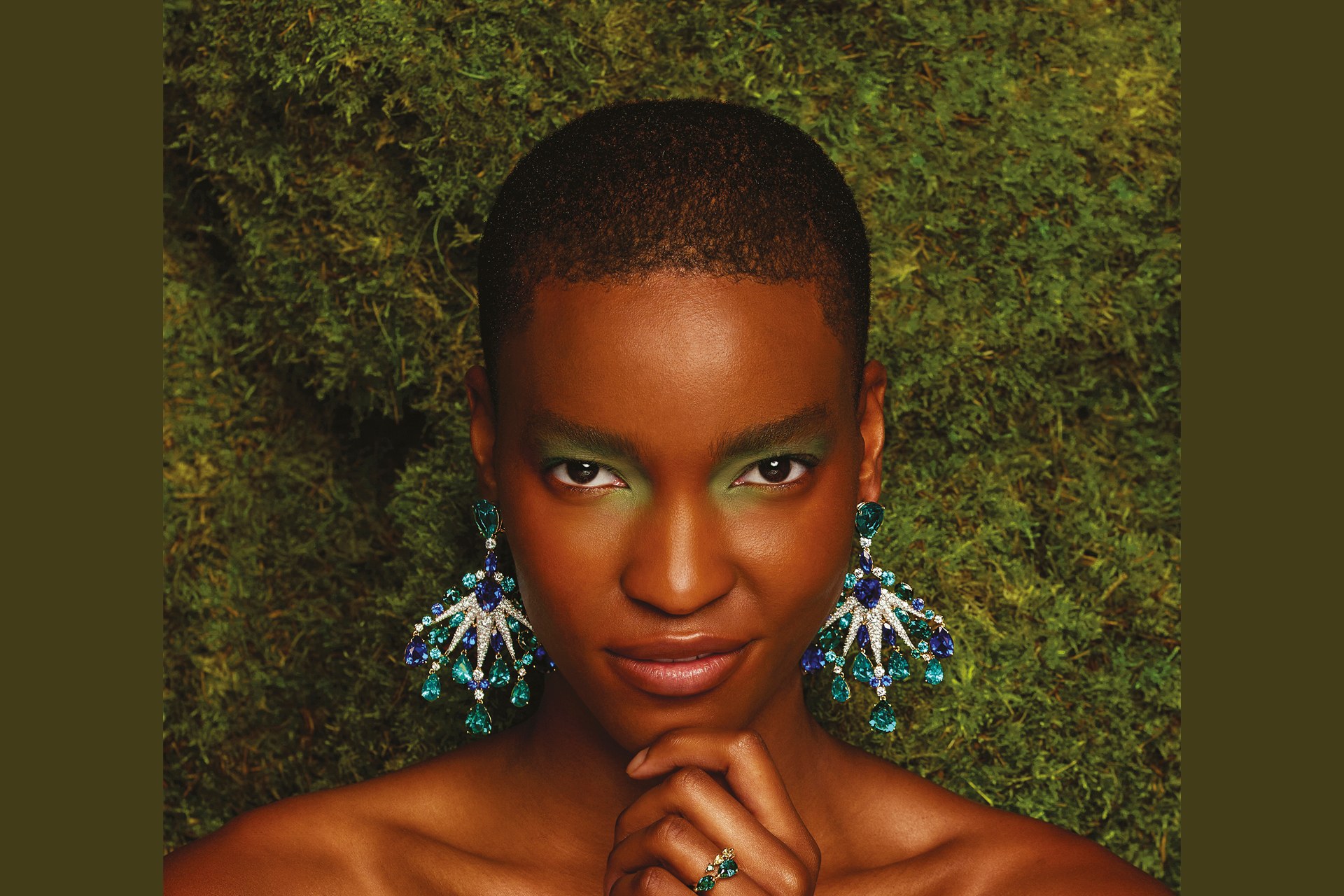
Should brands have more purpose than just returning profit to shareholders? B Corp-certified brands certainly think so. Having just become one itself, C&TH’s editorial director Lucy Cleland meets her fellow B Corps to discuss community, collaboration – and challenges.
To B or Not to B? C&TH Becomes a B Corp

© Claire Luxton / MTart Agency
Country & Town House is now a B Corp – and is the first glossy magazine in the world to become one. We have a B Impact Assessment (BIA) score of 92.3 (an average score for businesses is around 50 points, to give you some perspective). Points are hard won; crushed like pills into halves, quarters, eighths, sixteenths even as you eke them out by making your business kinder, more equitable, more socially impactful and better for the environment; not perfect, of course, but absolutely striving for higher standards. For those of you who know about B Corp, I’m feeling a wave of metaphorical pats on the back, which I’ll gratefully take. It took a leap of faith to get down and dirty in the weeds of our business (and kudos to Greenheart, the consultancy who held our hands throughout).
Not heard of B Corp? You’re not alone. After all – out of 5.5m registered UK businesses, only 1,400 are B Corp certified (although London has the biggest concentration of any city in the world with 700). From a quick personal poll, feedback ranged from, ‘Does that mean you can’t fly on a plane anymore?’ from the editor of a broadsheet supplement (thinking I should now be only wearing hessian sacks), to, ‘Wow, that’s great,’ from my mum, who when pressed, admitted she didn’t know what it meant but was delighted all the same.
But let’s rewind. B Corp stands for Benefit for all Corporations. B Lab – the nonprofit network that gives the certifications – has the lofty ambition of changing economic systems through the creation of standards, policies, tools and programmes that shift the behaviour, culture and structure of capitalism. B Corp businesses are intended to go from profiting only the few to benefiting all; from concentrating wealth and power to ensuring equity; from extraction to regeneration; and from prioritising individualism to embracing interdependence. (Phew, I took that from its communications directive.) Taking out the jargon, it’s about businesses which, yes, want to make profits, but also want to do good in the world through consideration of the wellbeing of people, planet and their communities – and they are legally bound to do so by amending their Articles of Association.
B Corp’s poster child is Patagonia, the American outdoor-wear brand. Its founder, Yvon Chouinard, recently made waves by announcing that instead of selling the company or taking it public, he would transfer it to a non-profit organisation that would ensure that its profits are used to combat the effects of climate change. For all the positive news stories it spawned, the negative ones were just as prolific, the backlash being caused by Chouinard allegedly avoiding a $700 million tax bill by giving it away. Then there has been the headline-grabbing furore whipped up by Nigel Farage when he was debanked by B Corp bank Coutts and the blowback over the fact that brands such as Innocent can gain accreditation even when they’re owned by the world’s biggest plastic polluter Coca-Cola.
It’s also – somewhat persuasively, if cynically – argued in books such as Anand Giridharadas’ 2018 bestseller Winners Take All that corporations (of which he includes B Corps as part of the movement of business as ‘a force for good’) who try to step in to solve the world’s greatest problems tend to employ the same solutions that got the world into the mess it’s in in the first place. And all the while they still serve their own profit purposes and divert criticism from the broken systems from which they themselves are benefiting. So, there’s no doubt that B Corp can get tangled up in our all pervasive culture wars. It’s not easy being green… but if you understand the intensity of work and the level of detail that goes into becoming a B Corp, it would be churlish to dismiss it as phoney – and damaging to bring it down. The fact remains that businesses who feel compelled to do better for people and planet are (in the main) doing so to fill a void left by successive policymakers who have failed to address these crises.
Historically, businesses have not factored in how protecting/regenerating the environment, paying living wages, including minority groups, using sustainable supply chains etc can play a part in helping us continue to live more equitably on this planet and therefore carry equal value to profits. Many businesses, indeed industries, have thrived from taking too many natural resources from the earth and not replenishing it; pumping the atmosphere with the greenhouse gases required to produce lots of stuff we do not need, which gets wasted or dumped in landfill, and exploiting people in doing it. Just look at the fashion industry… B Corp provides a framework for businesses to look at themselves and their communities more forensically.
B Lab, too, is in constant dialogue with its critics and keeps developing the BIA system. In fact, according to Thomas Bourne at Greenheart, Version 7, which launches next year, ‘will mean that companies wanting to certify will need to meet a set of non-negotiable requirements across ten core topics – this differs from the current approach in which companies are able to reach the 80+ points required for certification in a flexible way across the five areas of the BIA.’
We set out on our path to become a B Corp after the pandemic afforded us that particular time to ask ourselves what we could do better. It was at least two years’ work, some financial outlay on consultancy fees, ensuring London living wages were being paid and for enhancing policies such as maternity leave etc, and a microscopic look under every stone of the business to see what lurked beneath and could be improved upon in terms of social and environmental impact. It made me curious to meet some fellow B Corp businesses, hungry to discover what their reasons were for doing it, and whether there was a road ahead paved with (green) gold. And so I canvassed over 20 of them, mostly from the food and drinks, fashion and beauty industries but also from travel, communications and agencies.

Sustainability has been key to the ongoing success of Stripe & Stare
Firstly, if you believe what you read, statistics seem to stack up in B Corps’ favour on growth. On the B Corp website it says that B Corps saw an average growth of 26 percent between 2017 and 2020 vs the average for all UK companies of five percent. This seems to play out. Fashion brand Deploy, for example, which has an astonishing 149.5 score, says sales are up 50 percent year on year, and Katie Lopes is evangelistic about how putting sustainability and B Corp front and centre of her underwear brand Stripe & Stare has really helped drive a compound annual growth rate of 980 percent over the past five years. Other brands I spoke to found it trickier to align their growth directly to their B Corp status but, of course, growth is not the prime motivator.
As the founder of skincare brand SBTRCT, Ben Grace, points out, ‘I think you become a B Corp because it aligns with your values and what you want to achieve as a business, beyond profit.’ These businesses have other perhaps less tangible but just as important social and environmental purposes (each B Corp business has to publish an annual impact report publicly outlining exactly what its impact has been so there is transparency, plus they have to recertify with a higher score every three years).
There are though positive financial benefits from being part of an ethical supply chain. For drinks business The Duppy Share, it knows that the corporates that it sells to all have ambitious corporate social responsibility (CSR) targets and therefore understand that, ‘if we can tick a box for them by making their range more sustainable, then that’s a big win over our much richer, better known competitors who struggle with sustainable practice or implementing an accreditation like
B Corp so late in their existence.’
This is also true for peppermint farm Summerdown Mint. ‘A large international brand [unable to be named due to a confidentiality clause] specifically chose us to supply them with essential oil because of our environmental credentials,’ asserts Jo Colman, Head of Sales and Marketing (and scion of the Colman mustard family).
It seems that the real boon of B Corp, though, is the community and the opportunities for collaboration. While public awareness, all brands admit, is sorely lacking – ‘more education needs to be done for customers to better understand the benefits of shopping from B Corp businesses,’ says Amy Smith, Chief Strategy & Impact Officer of ethical shoe brand Toms, which pioneered business-style charitable giving with the launch of its ‘Buy One, Give One’ model – the access to other like-minded brands has led to fruitful relationships. ‘We’ve been able to partner on exciting projects with some other brilliant B Corps who we admire greatly,’ says Mahira Kalim, founder of cleaning brand Spruce. ‘It has helped us find creative solutions to sustainability challenges as we learn from fellow members,’ adds Ishwari Wadekar from Devon-based Naturalmat, producer of the most sustainable mattresses you’ll find.
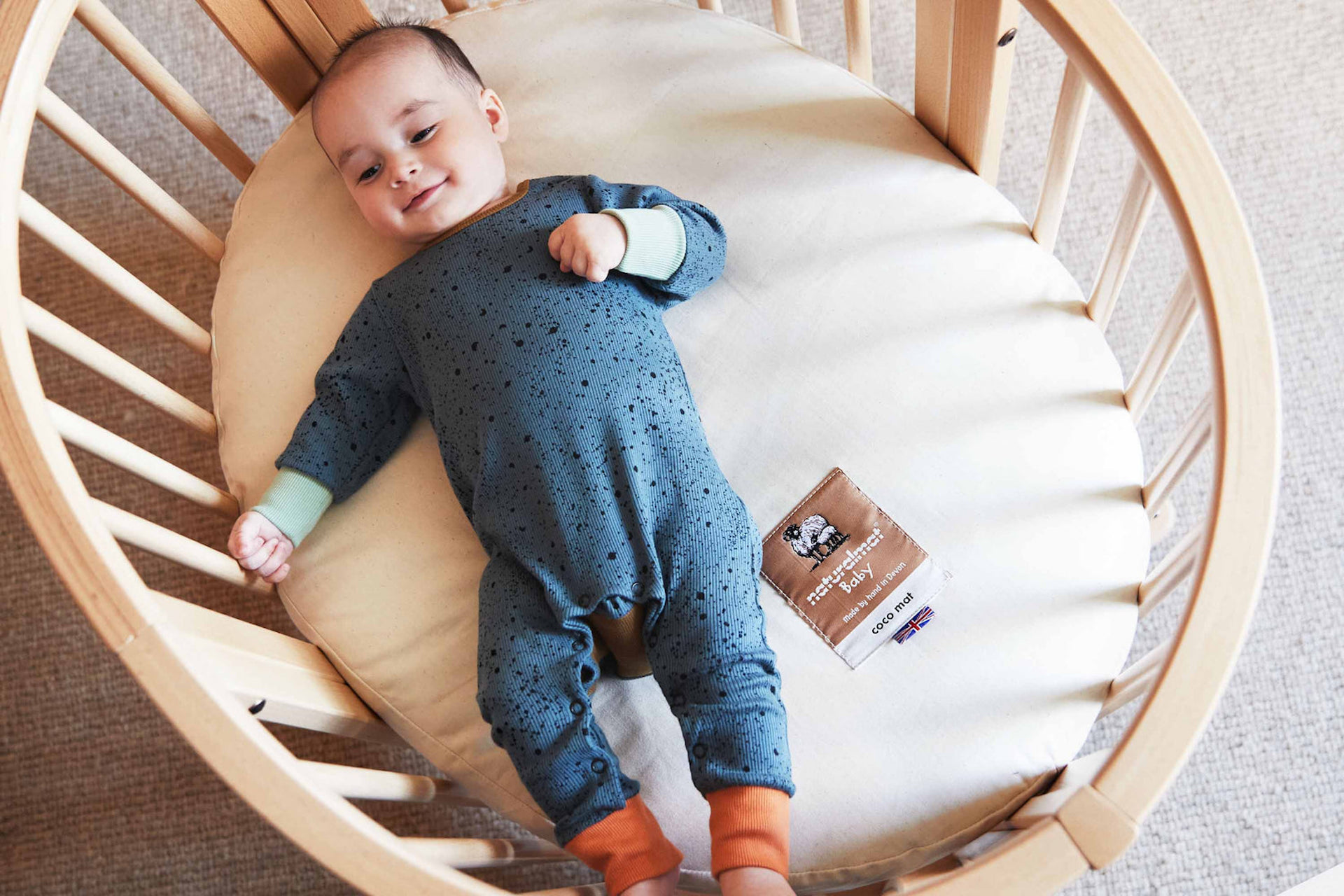
Naturalmat was founded with the idea of creating natural mattresses for babies
Not all is warm and fuzzy in B Corp land, however. One fashion brand founder I spoke to (who wished to remain anonymous) was despairing about how truthful customers really are when it comes to the reality of shopping responsibly. ‘We all like to look like we’re doing good,’ she tells me on the phone, ‘but behind closed doors, it’s a different story. We ultimately make decisions that are better for ourselves than the environment. People keep looking to brands to make change but the customers themselves don’t care. They mind about whether they can get a bargain and whether they’re going to look good in it. How an item was made means nothing to anyone.’ Yikes! But this almost makes the argument that businesses really do have a duty to do better – and make ‘being ethical’ seamless and the first choice for customers – we just need more and more businesses to step up to make that happen.
It can then, it seems, feel lonely and dispiriting being an ethical business leader. But when the world is literally burning around us, it’s hard to fathom why businesses wouldn’t want to be part of positive action to make things better – alongside many other much-needed cogs in the wheel such as the citizenship movement advocated by Jon Alexander, who calls for people in institutions, and positions of existing power, to give some of that power away and bring people into the decision-making processes that affect them.
That’s why we at C&TH wanted to get involved. We don’t presume anything so hubristic as wanting to change the world, but we do find ourselves in an environment that promotes vast over-consumption of stuff and a constant need for the new over everything. We therefore hope to use whatever influence we have to tweak our editorial messaging towards a more considered lifestyle, spotlighting people, products and brands that sing of a less extractive and damaging future – and to do it in a beautiful, optimistic and inspirational way.
So to me, B Corp is a no-brainer – it’s about our own accountability and engendering a different way of thinking and I would urge other businesses to consider joining. Change comes in tipping points and critical masses. What’s stopping you?
Join the Movement
C&TH is a B Corp. Here’s why some fellow members chose to work towards the accreditation

